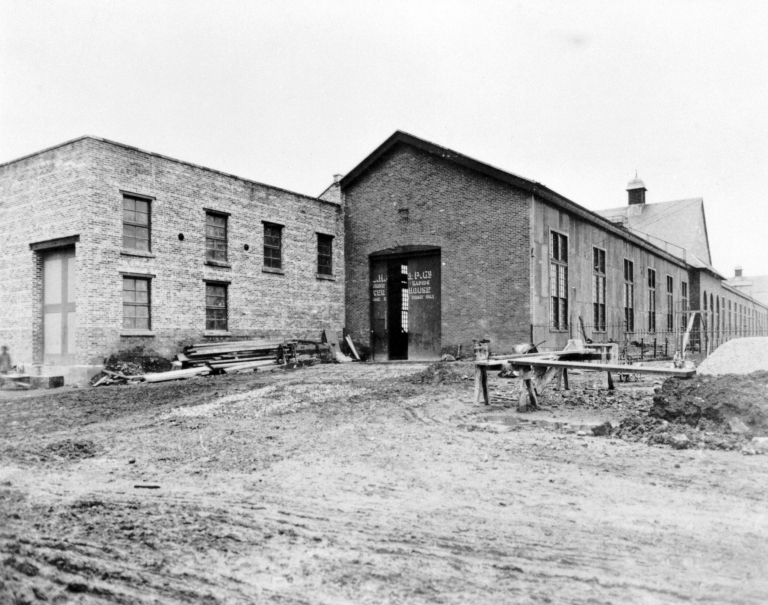There was an abundance of companies devoted to producing and distributing electricity at the end of the 19th and the beginning of the 20th century, giving rise to fierce competition between them. As a result, the Imperial Electric Light Company's connections with its clients were cut by the employees of Royal Electric Co. The Lachine Rapids Hydraulic and Land Co. and its subsidiary, Temple Electric Co., then took the opportunity to steal clients from them.
In this competitive world, one company dominated: Montreal Light, Heat and Power, under its President Herbert Samuel Holt. A new contract with the City of Montréal, negotiated by Royal Electric, which had reduced its rates by 50%, placed the Lachine Rapids Hydraulic and Land Co. at risk as well as the Imperial Electric Light Company. The latter's executives, on seeing its financial situation deteriorate, sold the company to Montreal Light, Heat and Power.
In 1903, the Lachine Rapids Hydraulic and Land Co. claimed nearly $40,000 for the electricity supplied to Montreal Light, Heat and Power. Negotiations carried out by both parties dealt with the purchase of shares of Lachine Rapids Hydraulic and Land, but also those of Standard Light and Power Co. and Citizens Light and Power. The issuance of $4 million in bonds by Montreal Light, Heat and Power facilitated the payment for acquisition of these companies.
The main shareholders of Lachine Rapids Hydraulic and Land, and particularly Burland and Walbank, became members of the Board of Directors of the new company. These transactions, and those finalized over the next four decades, gradually gave Montreal Light, Heat and Power the monopoly over the sale and distribution of electricity on the island of Montréal and surrounding area. In 1904, the newspapers virulently denounced the situation. This monopoly came to an end only in 1944, when the Québec government took control over electricity and created Hydro-Québec—which took over Montreal Light, Heat and Power as well as Beauharnois Light, Heat and Power.

